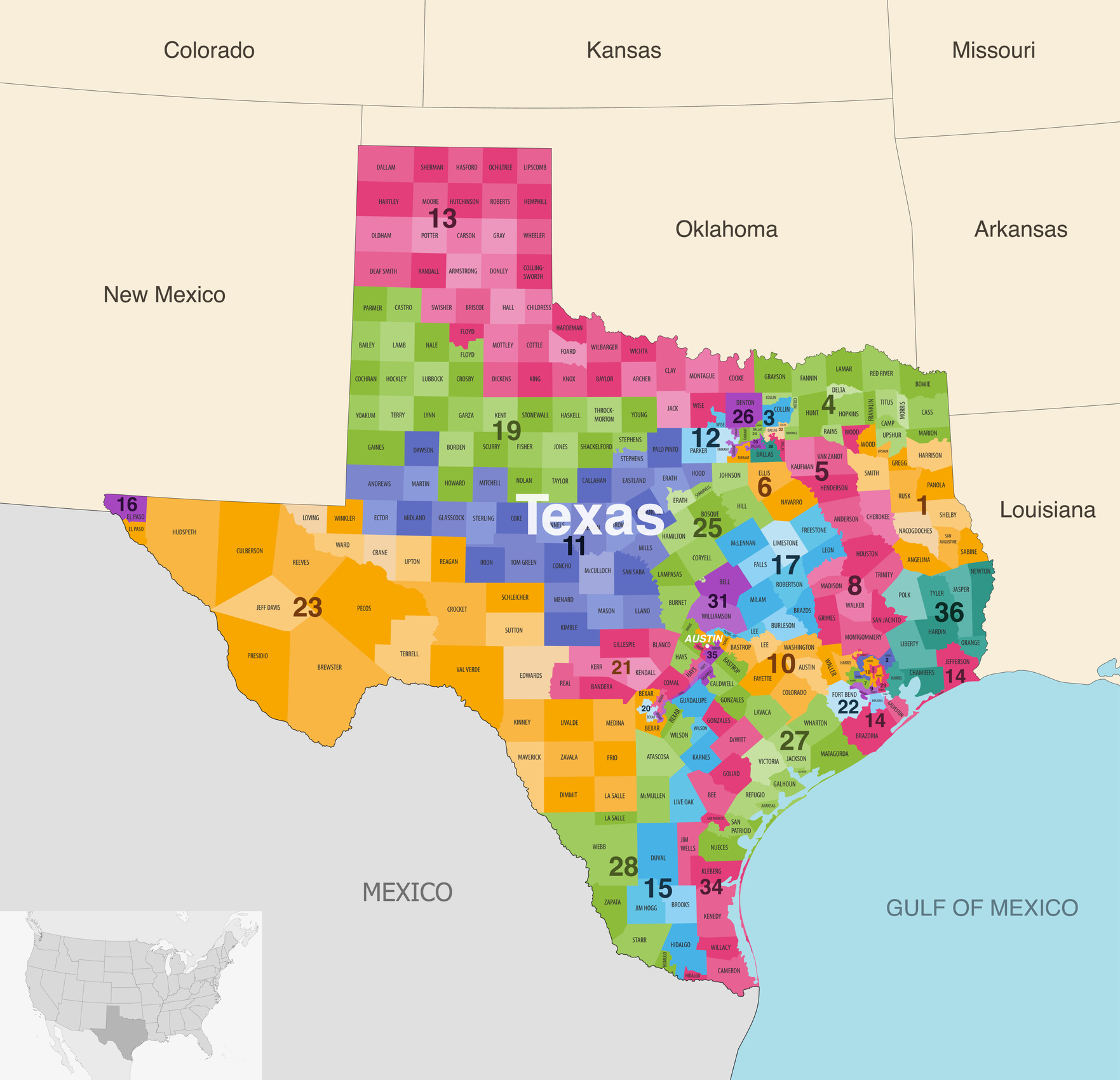Texas GOP redistricting push: In July-August 2025, Texas Republicans – spurred by President Donald Trump – launched a special legislative session to redraw U.S. House district boundaries mid‑decade, aiming to add five additional GOP‑leaning seats ahead of the 2026 midterms (AP News). To counter this, over 50 Texas Democratic legislators fled the state to Illinois and other states, breaking quorum to temporarily halt the vote. Governor Greg Abbott responded by threatening removal from office and fines (The Washington Post).
Democrats argue the map dilutes Black and Latino representation, violating the Voting Rights Act. Republican legislators and the previous Attorney General assert they have broad power to redraw maps under state control (AP News). Governors in blue states like California and New York – where maps are drawn by independent commissionsn – are exploring ways to redraw maps in response. However, independent-commission laws, constitutional requirements, and legal hurdles make retaliation slow and legally complex (AP News).
This debacle marks an unprecedented mid-decade redistricting “arms race.” Republican-led states are exploiting flexible redistricting rules to entrench power—while Democratic-controlled states face structural constraints that limit their ability to fight back quickly (Vox). The longer-term implications include, further erosion of representative democracy through partisan map gerrymandering, and rising pressure on Democrats to abandon independent redistricting norms, despite past support for them.
NASW-TX reaffirms its support for nonpartisan, citizen-based redistricting commissions as essential safeguards against partisan manipulation. The current crisis underscores that when legislatures hold redistricting power, minority and historically marginalized communities bear the brunt of political engineering.
(CalMatters, New York Magazine, Wikipedia)
This partisan escalation reveals the structural weaknesses in U.S. redistricting law. The NASW Texas Chapter (NASW-TX) strongly advocates for a federal standard or national redistricting commission to ensure fairness, transparency, and equality in the drawing of all congressional districts. Temporary retaliatory gerrymandering is not a sustainable solution.
Regardless of party dynamics, NASW-TX remains committed to elevating equitable representation – recognizing that democracy thrives when voters choose their representatives, not the other way around.(AP News,The Washington Post,San Francisco Chronicle)
More resources related to Texas redistricting:
Rebecca Milian’s Substack post:https://texasimpact.substack.com/p/nothing-in-common
Current Congressional Map (as of 2022): https://davesredistricting.org/maps#viewmap::1c2c1e0d-2fd1-43a8-a039-73e7023124d1
Proposed Congressional Map :https://davesredistricting.org/maps#viewmap::5d79f054-6135-47b7-9072-2b808b8db593
✅ TAKE ACTION NOW
- CONTACT YOUR TEXAS STATE LEGISLATORS
📞 Tell them to OPPOSE mid-decade redistricting and any bills that redraw maps without transparent, data-driven processes.
📍 House State Affairs Committee
| Cody Vasut | (855) 921-1345 | Chair |
| Jon E. Rosenthal | (866) 721-0893 | Vice Chair |
| Josey Garcia | (866) 695-0723 | Member |
| Barbara Gervin-Hawkins | (855) 706-0756 | Member |
| R.D. “Bobby” Guerra | (866) 486-7132 | Member |
| Charlie Geren | (866) 629-4776 | Member |
| Ryan Guillen | (855) 737-9013 | Member |
| Cole Hefner | (855) 706-0757 | Member |
| Hilary Hickland | (855) 733-2187 | Member |
| Todd Hunter | (866) 419-0102 | Member |
| Terry M. Wilson | (855) 921-1379 | Member |
| Christian Manuel | (855) 918-1301 | Member |
| John W. McQueeney | (866) 615-3105 | Member |



